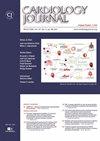心脏远程康复的现状及未来发展方向。
IF 1.9
3区 医学
Q2 CARDIAC & CARDIOVASCULAR SYSTEMS
引用次数: 1
摘要
发展远程康复是为了取得与标准康复过程相同的结果,并克服可能的地理障碍和工作人员不足。这在周期性危机局势中尤其重要,包括最近的COVID-19大流行。TR策略的正确执行需要受过良好教育的员工和专用设备。各种研究表明,就临床结果而言,TR可能具有与传统康复相似的效果,也可能降低每位参与者的医疗保健总费用,包括再住院费用。然而,与任何方法一样,TR有其优点和缺点,包括缺乏直接接触或先决条件,患者处理移动设备的基本能力,以及其他能力。本文讨论了TR的现状,主要关注心脏TR,描述了一些技术/组织和法律方面的问题,强调了适应症,检查了成本效益,并概述了可能的未来方向。本文章由计算机程序翻译,如有差异,请以英文原文为准。
Actual status and future directions of cardiac telerehabilitation.
Telerehabilitation (TR) was developed to achieve the same results as would be achieved by the standard rehabilitation process and to overcome potential geographical barriers and staff deficiencies. This is especially relevant in periodic crisis situations, including the recent COVID-19 pandemic. Proper execution of TR strategy requires both well-educated staff and dedicated equipment. Various studies have shown that TR may have similar effects to traditional rehabilitation in terms of clinical outcomes and may also reduce total healthcare costs per participant, including rehospitalization costs. However, as with any method, TR has its advantages and disadvantages, including a lack of direct contact or prerequisite, rudimentary ability of the patients to handle mobile devices, among other competencies. Herein, is a discussion of the current status of TR, focusing primarily on cardiac TR, describing some technical/organizational and legal aspects, highlighting the indications, examining cost-effectiveness, as well as outlining possible future directions.
求助全文
通过发布文献求助,成功后即可免费获取论文全文。
去求助
来源期刊

Cardiology journal
CARDIAC & CARDIOVASCULAR SYSTEMS-
CiteScore
5.10
自引率
10.30%
发文量
188
审稿时长
4-8 weeks
期刊介绍:
Cardiology Journal is a scientific, peer-reviewed journal covering a broad spectrum of topics in cardiology. The journal has been published since 1994 and over the years it has become an internationally recognized journal of cardiological and medical community.
Cardiology Journal is the journal for practicing cardiologists, researchers, and young trainees benefiting from broad spectrum of useful educational content.
 求助内容:
求助内容: 应助结果提醒方式:
应助结果提醒方式:


